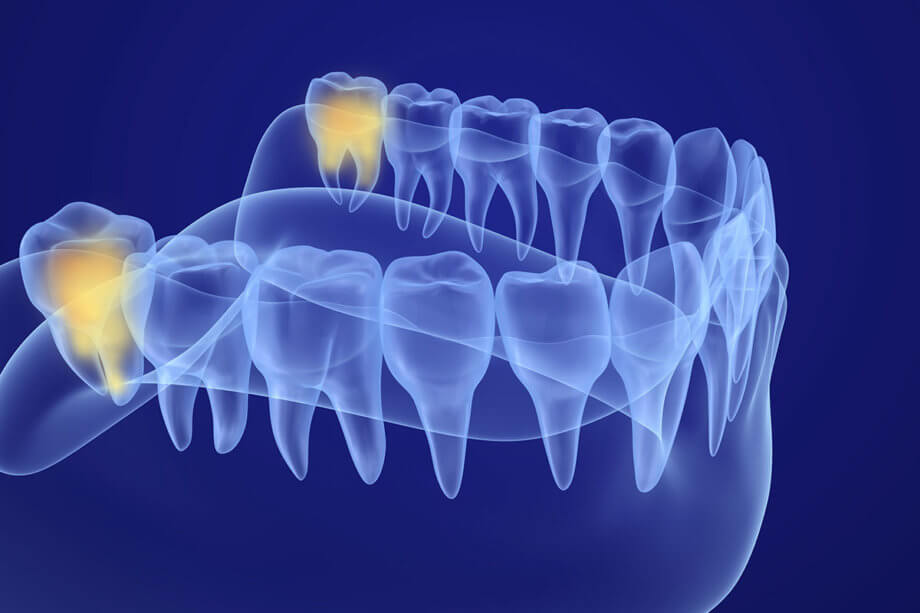
Wisdom teeth, also known as third molars, are the last set of molars to emerge in the back of your mouth. While some people have no issues with their wisdom teeth, others experience pain, swelling, and discomfort due to various reasons. This leads to the common dilemma faced by many individuals – whether to extract their wisdom teeth or leave them in place. To make an informed decision, it is essential to understand the factors involved in the wisdom tooth dilemma.
Why Are Wisdom Teeth a Concern?
Wisdom teeth can cause problems for several reasons:
1. Impaction
- Wisdom teeth may become impacted, which means they are unable to fully emerge through the gum line.
- This can lead to pain, swelling, and infection.
2. Crowding
- If there is not enough space in the jaw for the wisdom teeth to come in properly, they can cause crowding and misalignment of other teeth.
3. Infection
- Wisdom teeth are located at the back of the mouth, making them difficult to clean properly.
- This can lead to the accumulation of bacteria, plaque, and food particles, increasing the risk of infection and decay.
When Should Wisdom Teeth Be Extracted?
While not everyone needs to have their wisdom teeth extracted, there are several situations where extraction may be recommended:
1. Impacted Wisdom Teeth
- If your wisdom teeth are impacted and causing pain or swelling, extraction may be necessary to alleviate discomfort.
2. Risk of Infection
- If your wisdom teeth are difficult to clean and are increasing the risk of infection or decay, extraction may be recommended to prevent further dental problems.
3. Crowding or Misalignment
- If your wisdom teeth are causing crowding or misalignment of your other teeth, extraction may be necessary to maintain proper dental alignment.
Benefits of Wisdom Tooth Extraction
There are several benefits to having your wisdom teeth extracted:
1. Pain Relief
- Extracting impacted or painful wisdom teeth can provide immediate relief from discomfort and swelling.
2. Prevention of Dental Issues
- Removing wisdom teeth that are difficult to clean can prevent future dental problems such as infection, decay, and gum disease.
3. Improved Oral Health
- By removing problematic wisdom teeth, you can improve your overall oral health and reduce the risk of complications in the future.
Risks of Wisdom Tooth Extraction
While there are benefits to wisdom tooth extraction, there are also risks involved:
1. Surgical Complications
- Extraction of wisdom teeth involves a surgical procedure that carries risks such as bleeding, infection, and nerve damage.
2. Post-Operative Pain
- After extraction, some patients may experience pain, swelling, and discomfort during the healing process.
3. Potential Long-Term Effects
- Removing wisdom teeth may have long-term effects on jaw structure and alignment, which can impact dental health in the future.
Consulting with Your Dentist
Ultimately, the decision to extract or not extract your wisdom teeth should be made in consultation with your dentist or oral surgeon. They will assess your individual situation and provide recommendations based on the following factors:
1. X-Ray Evaluation
- X-rays can help determine the position of your wisdom teeth and whether extraction is necessary.
2. Examination of Oral Health
- Your dentist will evaluate the condition of your wisdom teeth and their impact on your overall oral health.
3. Discussion of Options
- Your dentist will discuss the pros and cons of extraction and alternative treatments to help you make an informed decision.
Conclusion
The wisdom tooth dilemma of whether to extract or not to extract is a common concern for many individuals. While extraction may be necessary in some cases to alleviate pain, prevent infection, or maintain proper dental alignment, it is essential to weigh the benefits and risks carefully. Consulting with your dentist and considering your individual circumstances will help you make the best decision regarding your wisdom teeth.